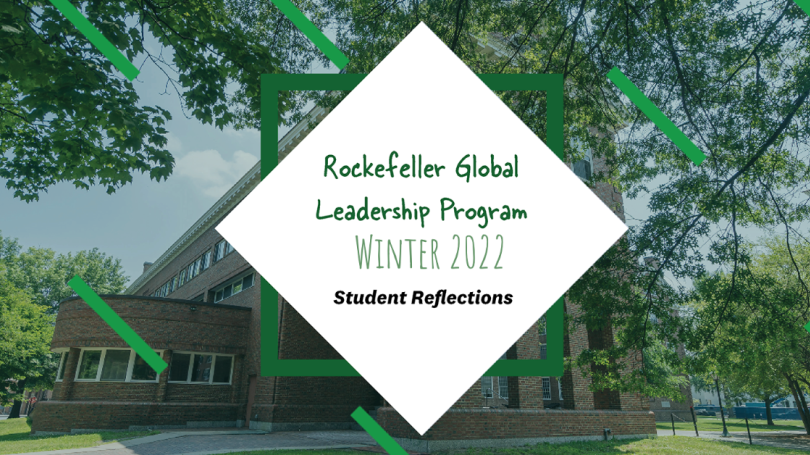
- Public Policy
- Leadership
- Funding
- News & Events
- About the Center
Back to Top Nav
Back to Top Nav
Back to Top Nav
Back to Top Nav
It is so normalized today to meet someone new and immediately dissect their background, personality, and appearance to find how they are different from us. This silent dance of figuring out who a person is before getting to know them can actually make it harder to overcome those differences and eventually appreciate the vast diversity that exists within ourselves and our closest relationships. This term in RGLP, every person in our cohort brought different perspectives, background, and ideas to the table. Yet, we didn't immediately focus on these. Instead, we focused first on what could bring us together. We had informal discussions talking about everything from buildings on campus to dining hall hacks. It was through these seemingly small interactions that allowed us to see that we really aren't so different even if we come from different places. We all were interested in growing to understand each other, whether through learning Capoeira or talking about mealtime traditions.
Once we were able to establish common interests to build that initial connection, we all felt less tense. This is why when it came time to talk about our differences– cultural, political, ideological, and otherwise– I could listen and appreciate them, even if I didn't always agree. I saw everyone in the cohort as a friend first and their ideas second. Had we not been vulnerable and gotten to know each other, I would have seen people as defined by their most controversial opinion or most outwardly different trait, which we are all guilty of doing from time to time. Being able to adapt our stereotypes that we have about people to center commonalities and appreciate what makes us unique helps to build a stable platform from which differences can be communicated, understood, and shared. It is important to continually self-reflect on our own biases that make dialogue across differences less accessible, especially in my case with the privilege as a white woman. From this reflection, we can adapt our thinking and actions in ways that may be uncomfortable, but it is only through leaning into that discomfort that growth can occur. I can safely say that RGLP pushed me to lean into all of the discomfort and vulnerability possible but I am so grateful for it because it was in those moments that I grew the most.